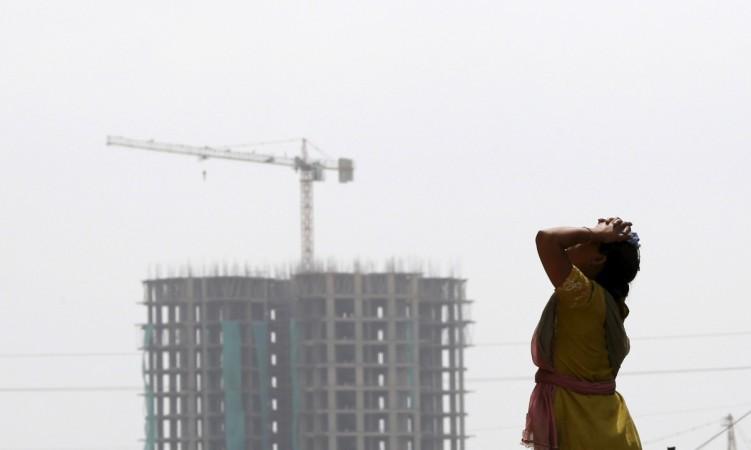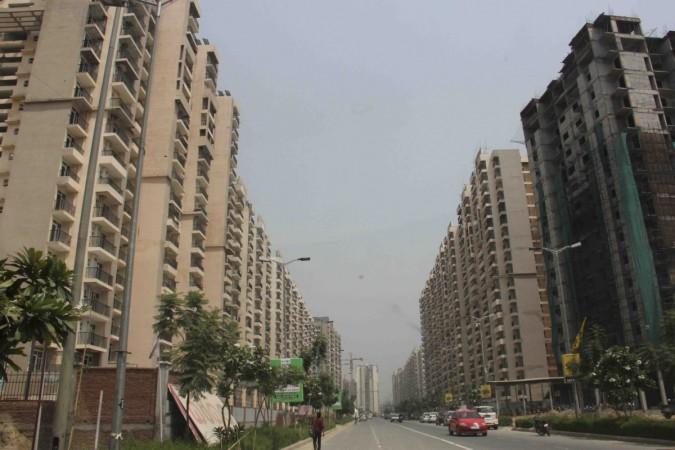
On July 1, 2017, the Goods and Services Tax (GST) had shaken up the real estate sector, which was already reeling from the after-effects of the two jolts of demonetisation and the Real Estate Regulatory Act (RERA).
But developers say the sector has somewhat overcome these setbacks. Sector players say the benefits of GST - frequently termed as the "most radical tax reform in India's history" - mostly lie in the long-termed macro-economic scenario, despite the many loopholes in the current scheme of things.
Are the consumers getting their share of benefit? Not so prominently yet. But many are hopeful of a brighter future.
Concerns over GST persist
A major problem the real estate market is facing is that of a higher tax rate on under-construction projects - 18 percent - compared to the previous service tax of 5 percent. However, the effective tax rate comes down to 12 percent since a rebate of one-third is given as land abatement.
"The segment, which is really struggling, is the under-construction one in the medium or luxury range, which has the maximum supply available in the market right now," Ankit Kansal, MD of 360 Realtors, a consultancy firm, told IANS.
People started waiting for completion certificates or occupancy certificates before moving into these projects because nobody wanted to pay 12 percent over and above the cost of the project," he added.
GST is not levied on ready-to-move-in properties and hence customers wait for the completion certificate to avoid paying the tax.

According to the chairman of realty group EKTA World, Ashok Mohanani, the tax percentage was "much higher than what was anticipated." The higher tax rate created a setback for both, end-users and investors, Mohanani said.
The affordable housing segment, however, received a breather after the government, in January 2018, slashed the effective tax rate on houses under the Pradhan Mantri Awas Yojana that provides credit-linked subsidy scheme of up to 8 percent.
Although, a section of the market is content and says the affordable segment has grown since some developers feel it should be slashed to the previous level of 5 percent.
A flawed generalisation?
Another issue that should be addressed, developers feel, is that of land abatement.
The government gives a concession of one-third of the 18 percent tax on a project, as land prices do not attract GST. However, realty players say the consideration that cost of land amounts to 33 percent, or one-third of the total cost, of the project could be a flawed generalisation as land prices vary depending on the region.
"Even though rebate is availed, the ratio is very low, thus making the flats expensive," said Dhaval Ajmera, Director of Ajmera Group.

According to the chairman and managing director of House of Hiranandani, Surendra Hiranandani, the land cost in the major metropolitan cities of the country is "almost 50-60 percent of the total costs", way higher than the government's take of 33 percent.
A solution to this problem, said Ankur Dhawan, the Chief Investment Officer of PropTiger.com, is to either bring land under GST or reduce GST for high-priced properties.
Dhawan adds that many developers are yet to pass the full benefit of input tax credit to customers, eventually increasing the cost for buyers. "Stamp duty" or the "registration cost" is another thorn in the side for the sector. Property market players believe it should either be included in GST or abolished for good.
The most notable positive impact of GST on the sector actually has been the "non-implementation of GST" on ready-to-move-in properties, keeping it tax-free and in turn leading to increased sales.

















